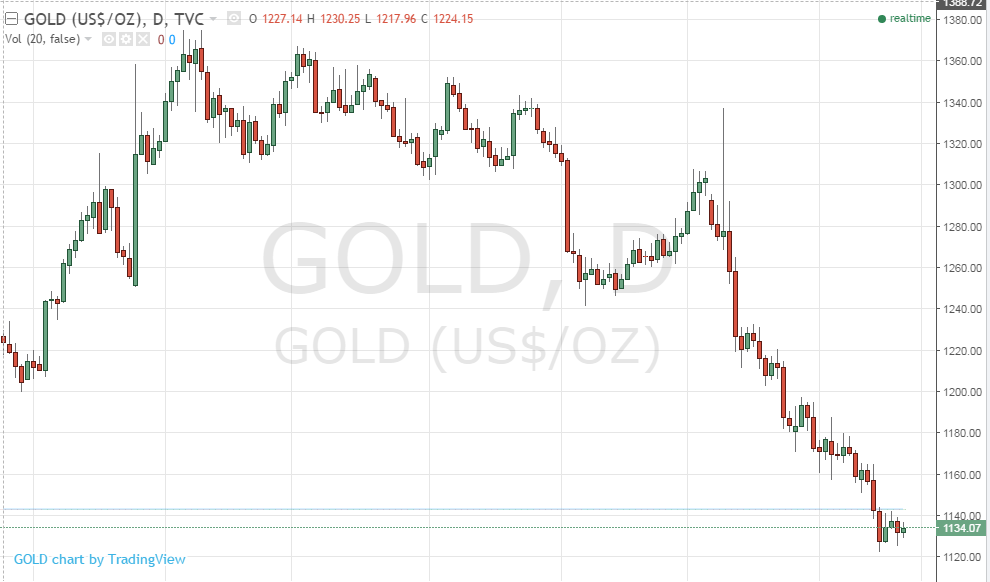Market news
-
23:30
Commodities. Daily history for Dec 21’2016:
(raw materials / closing price /% change)
Oil 52.51 +0.04%
Gold 1,133.20 0.00%
-
16:21
Gold takes advantage of dollar's breathing room
Gold for February delivery was recently up 0.4% at $1.137.60 a troy ounce on the Comex division of the New York Mercantile Exchange.
On Wednesday, the WSJ Dollar Index, which measures the dollar against other currencies, was down 0.3% at 93.06. A weaker dollar is bullish for the metal, because it makes dollar-priced commodities more affordable for investors who hold other currencies.
According to Dow Jones, the dollar's decline provided some breathing room for gold, which has been under pressure as the U.S. currency strengthened to a 14-year high on Tuesday. The metal has also been under pressure from an interest-rate increase by the U.S. Federal Reserve last week, paired with comments indicating that further raises are expected for next year.
-
15:36
U.S. commercial crude oil inventories increased
U.S. commercial crude oil inventories (excluding those in the Strategic Petroleum Reserve) increased by 2.3 million barrels from the previous week. At 485.4 million barrels, U.S. crude oil inventories are at the upper limit of the average range for this time of year.
Total motor gasoline inventories decreased by 1.3 million barrels last week, but are well above the upper limit of the average range. Finished gasoline inventories increased while blending components inventories decreased last week.
Distillate fuel inventories decreased by 2.4 million barrels last week but are above the upper limit of the average range for this time of year. Propane/propylene inventories fell 3.1 million barrels last week but are in the upper half of the average range. Total commercial petroleum inventories decreased by 11.9 million barrels last week.
-
11:20
Russia to increase oil export by the end of 2016 by 4.8%, to 253 million tons - Novak
Russian oil exports will increase by the end of 2016 by 4.8%, to 253 million tonnes, Russian Energy Minister Alexander Novak said.
"Supply of oil exports to rise ti 253.5 million tonnes, an increase of 4.8%", - he said.
-
09:13
Oil is trading higher
This morning, the New York futures for Brent rose 0.89% to $ 55.84 WTI + 0.83% to $ 53.74 per barrel. Thus, the black gold is trading in the green zone on expectations regarding the reduction of oil reserves in the United States. According to the American Petroleum Institute, stocks fell by 4.1 million barrels last week, while experts predicted a decline of 2.5 million barrels.
-
